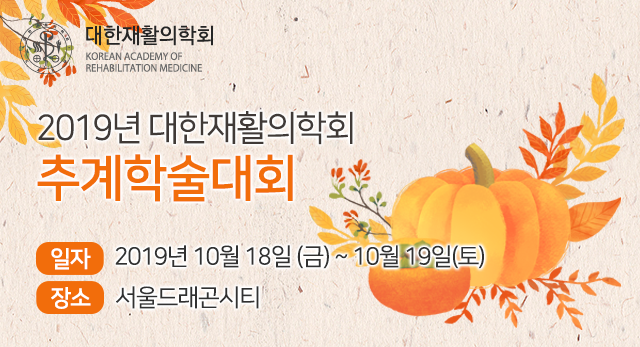Introduction:
In the aspect of rehabilitation referral system, classifying patients who require comprehensive inpatient rehabilitation programs is main issue. Several previous assessment tools have been no regard of medical care, nursing, caregiver, and equipment. Therefore the Rehabilitation Complexity Scale (RCS) designed to provide a simple measure of the complexity of rehabilitation needs and interventions for stoke, and it revised to extended version (RCSE). The aim of this study is to report reliability and validity of the Korean version of RCSE (RCSE-Ko) for patients with cerebral infarct.
Methods:
The RCSE includes five levels of clinical-rehabilitation complexity; C: need for basic care and support (0–4), N: nursing needs (0–4), T: rehabilitation demands and intensity of each intervention therapy (TD 0–4, TI 0–4), M: need for medical intervention (0–4) and E: need for equipment (0–2) with a total score of 22 (the higher the score, the more complexity). With the agreement of Lynne Turner-Stokes, the original editor of the RCS, three physiatrists who are fluent in Korean and English translated the English version of RCSE into Korean. Finally, we reviewed it with reflection of Korean medical insurance system and culture.
On the day of initial treatment or last treatment, the RCSE-Ko for 51 acute infarct patients was scored by two physiatrists (P), two occupational therapists (OT), and two physical therapists (PT), respectively. Within one or two days, Berg Balance scale (BBS), Mini Mental Status Examination (MMSE), Modified Bathel Index (MBI), National institutes of health stroke scale (NIHSS) were rated by their OT and PT. Intra-rater reliability and validity were assessed with Cohen’s kappa, Cronbach’s alpha, and correlation coefficient.
Results:
For inter-rater reliability, two physiatrists’, OTs’, and PTs’ kappa coefficient were 0.842, 0.675, and 0.633, respectively (P < 0.01). (Table 1) Pearson’s correlation coefficients between physiatrists and OTs, OTs and PTs, physiatrists and PTs were 0.860, 0.934, and 0.863 (P < 0.01), respectively. (Table 2) Cronbach’s alpha for composition reliability was 0.964 (P < 0.01). RCSE-Ko showed moderate negative correlation with BBS (-0.429), and MBI (-0.324) which were assessed with spearman correlation coefficients . (Table 3)
Conclusion:
The RCSE-Ko is a reliable and valid assessment tool to identify patients with cerebral infarct who needs comprehensive inpatient rehabilitation program.
|










